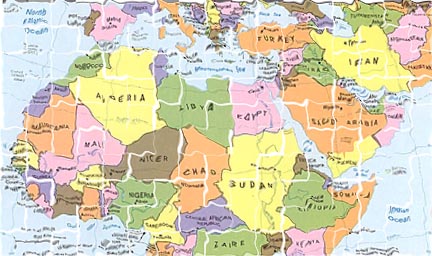
[These remarks were written on the train back to New York after the 1997 AAA meetings in Washington. I had earlier provided extemporaneous remarks on the subject at the business meeting of the Middle East Section. I found these in a set of old files and decided such a confession is timeless, at least in my case. And this year I will again be presenting papers at both AAA and MESA. ]
The idea of “Area Studies,” especially those areas where several centuries of Western colonialism have helped define the modern boundaries, is under attack. One of the more besieged areas is the Middle East, once the Near East and part of the politically uncorrected Orient as such. I am not particularly interested in defending Area Studies as such. But I am dismayed at the weakening of Middle East Studies programs at major universities. As an anthropologist who encourages other anthropologists to work in the Middle East, I appreciate the teaching of Middle Eastern languages, literature, culture, history, politics, economics, etc. as potentially useful information for ethnography. I do not know how trying to learn “too much†about the region could distort one’s anthropologizing.
Each fall I have a major decision to make: should I go to AAA or MESA? The fact that these annual meetings are sometimes at exactly the same time does not simplify the decision. I have even been so foolish as to organize panels at both conferences in the same year. The majority of panels at both conferences do not really interest me (or anyone, I should imagine), and I often find more of interest with colleagues at MESA than at AAA. I find myself more at home around people who share at least some basic background about a specific cultural context I study in detail than with many in my discipline of training; the latter has such widely divergent parts that I defy anyone to memorize the entire list of subsections with columns in the Anthropology newsletter. Four or five fields I can handle, indeed I regularly teach virtually all of them, but it’s the burgeoning subfields that smother me.
The ongoing deconstruction of Orientalism has in the two decades since Said said what he said become quite disconcerting to me. Postcolonially speaking in transglobalized gobblygook, the idea of a “Middle East Expert†is cast into the den of hegemonic inquity where ivory-towering, intellectual power plays dominate, by definition, the indigenous other. All issues are global; all channels are transnationalized; all communities are imagined; all knowledge is gender biased; all is vanity.. and much of what I read is awful.
As an impressionable graduate student in the early 70s, I flirted with Foucault’s spade-not-in-hand archaeology of past misdeeds. How dare the white, male, elitist, “we-serve-em-up†world of established historians, Arabists, Islamicists and social scientists think it more relevant to define the Arabic term “thawra†as a camel’s rising than an angst-inspired revolution of denied indigenous authenticity? How dare a Nerval revel in the phantasms of the harem or a Burton don the disguise of a pilgrim to savor the forbidden precinct? What right did we have to tell their story to ourselves? Ah, the culturally relative mea culpas that rose like sweet incense in that Orientalist-bashing mode.
A quarter of a century later my sense of collectivized guilt for having a highly romanticized and continuing passion for the Middle East has all but disappeared. Enough of the self-gratifying dribble of deconstruction and mindless hand-wringing and, for God’s sake, can we not stop reflecting abstractly on someone else’s failed fieldwork in Morocco. For those of you who may not know, I will come clean out of the closet. I fell in love with the Middle East because I read Burckhardt, Burton and Doughty cover to cover, because I at one point admired Lawrence of Arabia, because I grew up wanting to be a Biblical archaeologist, because of all those odalisques of Oriental beauties in reputable museums, because learning Arabic was a kind of religious experience for me.
Some who write about writing ethnography say we are the problem when we assume “being there†gives us some measure of expertise. My “being there†was in an agricultural valley of Highland Yemen for a little over a year in 1978-79. I do not claim to have anywhere near the knowledge of a Yemeni farmer, but I learned a lot more about Yemeni agriculture than anyone I know who has not been there, done that. Like any ethnographer who is at least half serious, I was not just “there†— I documented what I learned. And I have kept on learning, both by return visits, comparative research in other parts of Yemen and an unrelenting investigation of Yemeni texts describing agriculture. “Being there†is not synonymous with colonialist posturing; it can actually be a foundation for saying something useful.
It is quite disciplinal to lay claim to being an expert on my own field site. My personal interests expand to all of South Arabia, where I have been privileged to travel extensively, the whole Arabian Peninsula, the wider and no longer very fertile crescent and indeed anywhere Arabic is spoken east and west. I tend to have more interest in something written about Islam in Egypt, for example, than Islam in China. This is an area bias I freely admit. But the area I study most is not the only area I have an interest in. I do not ignore the rest of the world, vast and overwhelming as it has become, because my research focus has been in the Middle East. Why should I? I will read about Islam in China or voodoo in Haiti or Fundamentalist snake handling in West Virginia
I consider myself a Middle East Area Specialist, an “expert†on some issues, even somewhat of an Orientalist in tone, fully aware of how little I really know only because of how much I have tried to learn.